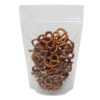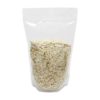Blog
Does Coffee Give You Math Superpowers?
We have all seen those adverts where the alarm goes off in the morning, not wanting to get out of bed. Eventually, the person trudges down the stairs only to be woken by a freshly brewed cup of coffee.
As the person grips the coffee and smells the fresh aroma, a smile develops, and an almost immediate change of expression is noticeable.
It sounds ideal and the commercial companies probably just wanted to entice you to buy the coffee, but recent research has revealed that there might be more truth to the adverts than only a means to lure you to the shops.
The study shows that smelling a coffee-like scent has the potential to make you better at math.
The research
Some researchers at the Stevens Institute of Technology in New Jersey published a new study in the Journal of Environmental Psychology.
The investigation revealed how people who were exposed to coffee-like scents were able to perform better in the Math portion of the Graduate Magnitude Aptitude Test (GMAT), than those who weren’t.
The GMAT is used as a type of entrance exam for business school.
How’d they do it?
The math is simple, take 100 participants or so, split them in half and have them write the GMAT. That is a general idea though. The researchers took the candidates and administered a 10-question GMAT algebra test to them.
However, one half of the group wrote the test in a room that was constantly gets filled with the aroma of freshly brewed coffee. Whereas the other half wrote the test without the coffee smell.
The results showed that a significant enough number of participants in the coffee room fared better in the test than the ones who didn’t smell coffee. They attributed the result to a boost in mental function.
Why did they do better?
The researchers believe that part of the answer lies in the smell and what the brain associates with that smell. It hinged on a type of placebo effect because the participants only smelled a coffee-like scent. There was no caffeine involved, not even coffee, just the smell.
One of the researchers, Adriana Madzharov, said that the fact that they performed better in the test due to the smell alone was already interesting. However, what got her attention was that the people who smelled the coffee had an expectation that they would do better and that this expectation could have been the reason for their enhanced performance.
In a follow-up survey, the participants were questioned regarding their results, and they noted that they felt that they would be more alert in the presence of a coffee smell and that this heightened state of mind would assist them and increase their analytical reasoning skills.
What makes coffee so unique?
In the past, coffee has been misrepresented, and it was labeled as an unhealthy drink that could have dire consequences to your health if you have too much of it. However, recent studies have come to the fore to give a coffee a facelift.
The truth is that coffee is very healthy. It is a significant source of antioxidants and recently was even associated with decreasing the risk of liver disease and type 2 diabetes.
There are a host of ingredients that make coffee such a potent brain and health booster. Apart for the caffeine, coffee also contains polyphenol antioxidants which can benefit blood sugar metabolism and reduce high blood pressure.
Trigonelline may prevent tooth decay, and cafestol is good for the liver. But that still does not explain why it is good for your brain.
How does it affect the brain?
The caffeine in coffee is the substance that we need to thank for better brain function. Caffeine interacts with adenosine, the substance that your body releases to make you sleepy. Adenosine attaches itself to specific brain receptors and keeps them from firing. The effect is that you begin to feel drowsy due to the slow neural activity.
Caffeine and adenosine have very similar molecular structures, so when caffeine is present, it competes for the same receptors as the adenosine.
When it attaches to the receptors, it prevents the adenosine from slowing you down and promotes central nervous system stimulation. The result is that you feel more alert.
Once the caffeine stopped the adenosine from making you drowsy, the central nervous system is stimulated, and other neurotransmitters are released, like dopamine, serotonin, and noradrenaline.
All of which influence your mood, attention, learning and general brain function.
So how does the smell of coffee help you?
As the study suggested, the results could have been based on placebo. To put it in layman’s terms, the smell of the coffee activated the brain to release certain neurotransmitters based on the expectation of the person.
However, the expectation of the person is not the only thing that makes a placebo work.
Psychologically, comfort and conditioning also play a role. Like the commercial, we have been conditioned into experiencing comfort, and part of that conditioning comes from holding that cup in hand and taking in a whiff of the coffee’s aroma.
The expectation was shaped by what the media told us about the coffee in that it had that wake-up effect. So even if no coffee was consumed, the smell and the association with the smell, possibly triggered a release of the neurotransmitters that improve brain function and focus.
The power of suggestion is often underrated, but that is mainly because we don’t always understand, or are even aware of how our brains react to the suggestions. If coffee was never promoted as the pick-me-up as it was in the countless commercials, we have seen, then the outcome of the study might not have been the same.
However, western culture holds coffee in high esteem and what was originally only a sales strategy, could have changed how the body reacts to coffee.





